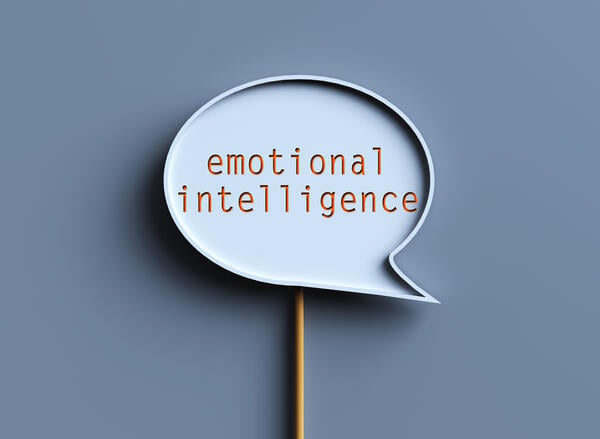
Hiring With Your Head—and Your Gut (opinion)
We’ve all been there: sitting on a search committee, sifting through credentials, interview notes and teaching demos, trying to decide whom to bring into our academic community. We talk about fit, collegiality and the balance between teaching and research. We refer to the rubric, the required qualifications and the preferred ones. We weigh experiences, diversity, alignment with the mission and potential.
And sometimes, quietly and without warning, we feel that small, subtle shift in our gut that says something doesn’t align.
For me, it happened during a campus interview years ago. The candidate had strong materials, solid experience and a warm, engaging manner. Throughout the formal interview, they said all the right things. Faculty were cautiously optimistic. But as I drove the candidate to the airport at the end of the visit, something changed. They relaxed, as anyone would, and for a brief second, I saw something in their eyes. A flash of disdain, maybe. Something sharper than the persona we had seen earlier. It was a shift in energy. A flicker of incongruence between how they had presented themselves and how they now carried themselves.
I put the feeling aside. After all, it was just a second. A moment. Something I couldn’t explain. Was I reading too much into it? Was I being unfair?
Later, I reflected on smaller details from their candidacy that had already made me pause. Their responses to scheduling emails had been brief and slow, lacking the warmth or curiosity I’d seen from other candidates. These weren’t red flags on their own, but together they created a subtle unease.
At the time, I was a relatively new assistant professor. I didn’t have the language or the authority to raise what I sensed in a meaningful way. And so, I said nothing.
Looking back, I now realize I could have simply asked a question like, “Did anyone else notice anything that felt a little different or off in our less formal moments with the candidate?” or “How did the candidate’s tone and energy feel during the downtimes between scheduled sessions?” These aren’t accusations—they’re openings for reflection. Questions like these can invite others to surface what they might have noticed but hadn’t yet verbalized.
Gut Feeling Meets Emotional Intelligence
Intuition doesn’t have to be the enemy of process. In fact, it can be part of an emotionally intelligent hiring culture—one that’s reflective, discerning and transparent. Emotional intelligence in this context is about being attuned to the human elements of a candidate’s fit. When we notice a gut reaction—whether it’s a spark of enthusiasm or a twinge of concern—it often stems from that attunement. What we call a “gut feeling” is frequently our mind’s quick synthesis of subtle cues, from body language to tone, guided by our own experiences and values.
Emotional intelligence in faculty hiring begins with self-awareness: tuning in to how a candidate’s presence affects you—whether through curiosity, ease or discomfort—and asking what your reactions might be signaling. It includes social awareness, noticing how others respond in informal moments and whether the candidate engages in ways that feel consistent with your department’s values.
Emotionally intelligent hiring also requires self-regulation—the discipline to slow down, hold back from snap judgments and lean into questions rather than assumptions. It thrives on relational transparency, where committee members can share subtle impressions without fear of being dismissed as merely “subjective.” And it rests on ethical discernment: the ability to examine whether those impressions are connected to job-relevant behaviors, not unconscious biases.
Testing What We Feel
Intuition shouldn’t be used to override policy or protocol. It should be used to sharpen it. When something feels off, ask yourself,
- Am I noticing a misalignment between the candidate’s stated values and their interpersonal behavior?
- Have others noted something similar?
- Is there a way to probe deeper in follow-up interviews?
- Can references offer insight into what I’m sensing?
- Is what I’m noticing connected to the job’s required competencies, or is it something unrelated?
If the answer to that last question is unclear, slow down. Revisit the evaluation criteria. Look for patterns. Talk with colleagues. Our job isn’t to be mind readers—it’s to be community stewards.
When Intuition Becomes Wisdom
We often think of emotional intelligence as something soft and interpersonal. But it’s also rigorous. It requires noticing your own biases, resisting overconfidence and attending to the full emotional ecology of a hiring process.
The truth is, faculty hires change departments. They shape culture, morale, collaboration and stability. We owe it to our institutions and ourselves to trust what we notice and to reflect on it with care.
Sometimes the most important insights don’t shout—they whisper. When we honor our instincts enough to examine them, and then ground them in facts, we hire with both head and gut. That practice doesn’t just avoid heartbreaks, mismatches and regrets—it builds stronger hires and healthier departments.
When we talk openly about what we sense—not just what we score—we build departments rooted in both discernment and trust.
Source link



